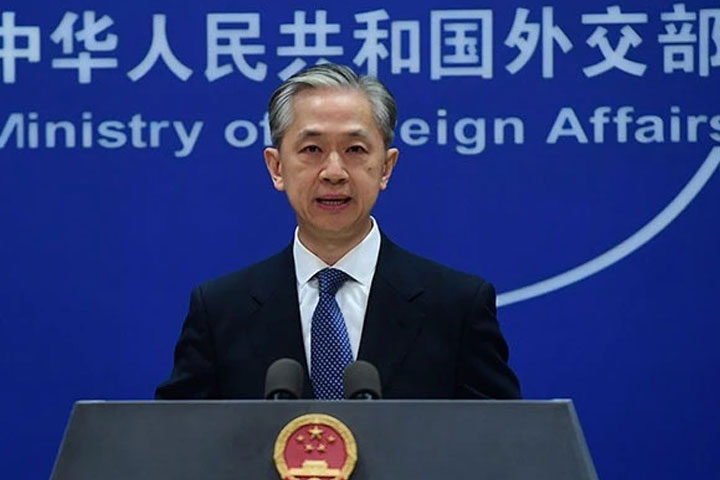Ukraine war is changing the global arms trade
France has overtaken Russia on the list of the biggest weapons exporters, a study from the Stockholm International Peace Research Institute has found. The United States has reinforced its global dominance in arms sales.
Russia's 2022 invasion of Ukraine and the ongoing war has driven new arms purchasing in Europe in dramatic fashion, with US manufacturers being the main beneficiaries, according to a new study from the Stockholm International Peace Research Institute (SIPRI).
From 2019 to 2023, the worldwide trade in weapons declined by 3.3% overall from the 2014-18 figures, but the amount of arms imported by European countries in that period doubled compared with the previous five years.
At 55%, the lion's share of arms sales to European countries came from the United States. This was up 20 percentage points from the previous period.
US's global dominance
Mainly thanks to sales to European countries, the United States increased its overall weapons exports by 17%. Stateside producers delivered arms to 107 countries, more than in any other period studied by SIPRI or any other exporting nation.
"The USA has increased its global role as an arms supplier — an important aspect of its foreign policy — exporting more arms to more countries than it has ever done in the past," said Mathew George, director of the SIPRI Arms Transfers Programme. "This comes at a time when the USA's economic and geopolitical dominance is being challenged by emerging powers."
Unsurprisingly, Ukraine is the European country where weapons imports have most dramatically increased. From 2019 to 2023, Ukraine went from being a minimal importer and a site of domestic production to being the No. 4 weapons buyer in the world, after India, Saudi Arabia and Qatar. Imports increased 6,600% compared with the previous period.
In 2023, Ukraine was the No. 1 global arms importer. However, its allies offered rather than sold many of the arms it received in the fight against Russia. The United States, Germany, and Poland were Ukraine's top three suppliers.
Russia's exports slip
The five biggest arms exporters worldwide were the United States, France, Russia, China and Germany. France overtook Russia to claim the No. 2 spot.
Russia's exports fell by 53%. French sales surged 47%. In 2019, 31 countries were still receiving weapons from Russia. By 2023, that had dropped to 12, with India and China, which have kept up trade in oil and gas with Russia, being by far the most significant customers.
"In other cases, the US and European states to some extent, too, have put pressure on countries that have been buying Russian arms before or were thinking of doing that." Pieter Wezeman, one of the authors of the report, told DW. Wezeman said that was "something which we could see very strongly in the case of Egypt, which was going to buy Russian combat aircraft, which was then pressured by the US not to do so and basically has now turned to France to buy advanced combat aircraft."
France is pursuing a policy of "strategic sovereignty," Wezeman said. "Basically, it wants to be able to apply military force whenever it wants to without being dependent on weapons from someone else. Therefore, they need an arms industry, but, to be able to have that, you really need to export. Otherwise, it becomes way too expensive."
France's weapons industry has been very successful over the past 10 years, Wezeman said, with top sellers being the Rafale fighter aircraft, as well as submarines and frigates.
Germany's submarine exports
Germany's position as the world's No. 5 arms exporter remained unchanged from 2014 to 2023, with the Middle East as its main customer region.
Arms exports from Germany fell 14% over that period, though Wezeman said the decline was relative. The previous five-year period was exceptionally buoyant due to large orders, particularly of submarines.
In contrast, the year 2023 on its own was particularly good for the German arms industry. Wezeman said that was "partly related, of course, to the military aid that has gone to Ukraine, but also related to the delivery of, for example, submarines to Singapore and frigates and corvettes to both Israel and Egypt."
In contrast to their European counterparts, African countries bought about half as many foreign weapons from 2019 through 2023 as they had in the preceding half decade, primarily driven by a decline in purchases from two major importers. Algeria imported 77% fewer arms products. Morocco's purchases went down 46%.
Russia, whose presence on the continent has expanded in recent years, is the No. 1 weapons supplier to countries in Africa, followed by the United States and China.
11 Mar 2024,18:03
















 Live Tv
Live Tv









